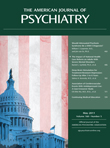Deep Brain Stimulation for Treatment-Resistant Depression: Follow-Up After 3 to 6 Years
Abstract
Objective:
A prevalence of at least 30% for treatment-resistant depression has prompted the investigation of alternative treatment strategies. Deep brain stimulation (DBS) is a promising targeted approach involving the bilateral placement of electrodes at specific neuroanatomical sites. Given the invasive and experimental nature of DBS for treatment-resistant depression, it is important to obtain both short-term and long-term effectiveness and safety data. This report represents an extended follow-up of 20 patients with treatment-resistant depression who received DBS to the subcallosal cingulate gyrus (Brodmann's area 25).
Method:
After an initial 12-month study of DBS, patients were seen annually and at a last follow-up visit to assess depression severity, functional outcomes, and adverse events.
Results:
The average response rates 1, 2, and 3 years after DBS implantation were 62.5%, 46.2%, and 75%, respectively. At the last follow-up visit (range=3–6 years), the average response rate was 64.3%. Functional impairment in the areas of physical health and social functioning progressively improved up to the last follow-up visit. No significant adverse events were reported during this follow-up, although two patients died by suicide during depressive relapses.
Conclusions:
These data suggest that in the long term, DBS remains a safe and effective treatment for treatment-resistant depression. Additional trials with larger samples are needed to confirm these findings.



